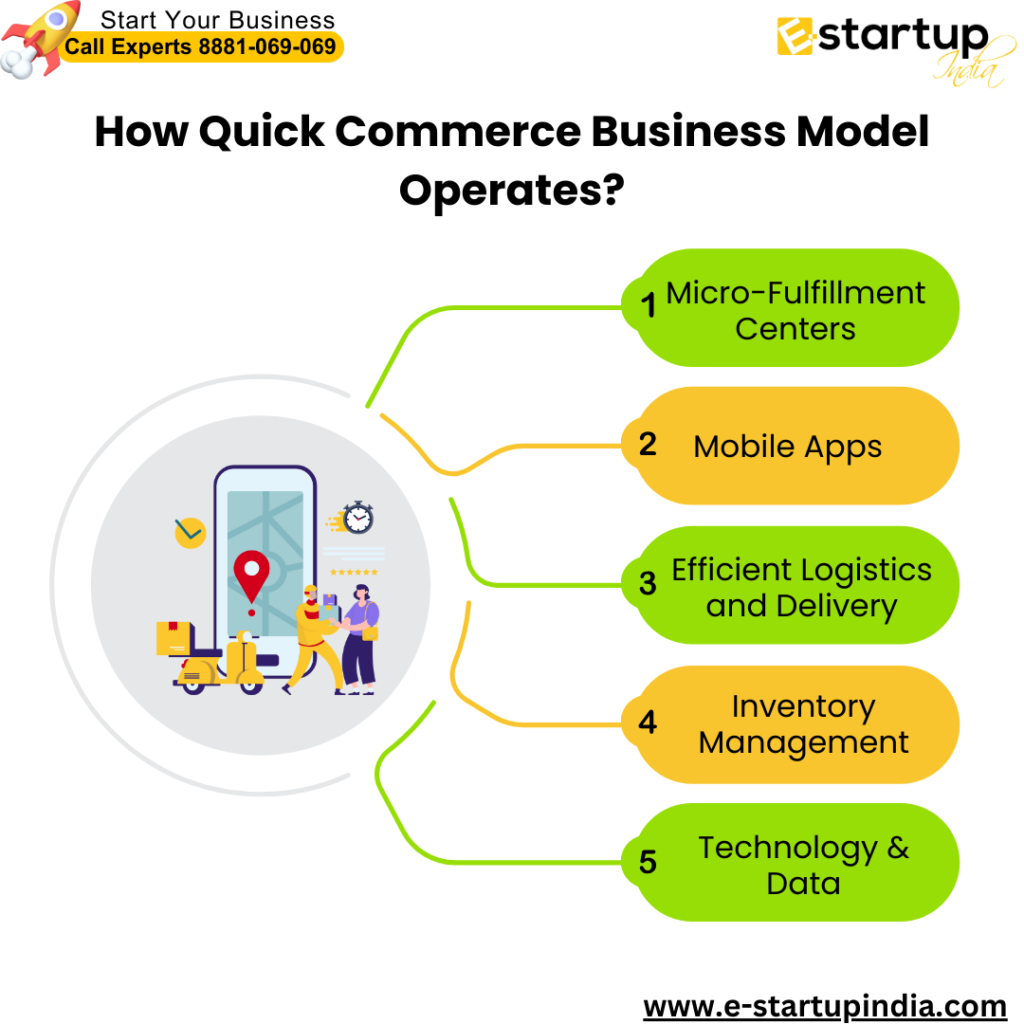In recent years, expanding on-demand delivery services has accelerated the growth of a new model: quick commerce. This leverages the delivery lead times with orders generally less than an hour. In other words, what exactly is the quick commerce business model and how does it work?
What Is Quick Commerce?
Quick commerce or q-commerce is a business model where goods are delivered to the customer within, say, 30-60 minutes. This runs against the traditional e-commerce model wherein customers would be happy to wait a couple of days for their goods to arrive.
Quick commerce relegates value to time, convenience, availability, and hyper-local delivery supply chains. It leverages technology to a large extent, such as real-time tracking and highly efficient logistics operations.
How Does the Quick Commerce Business Model Operate?

The fundamental concept of the quick commerce business model is to allow consumers to purchase a vast range of products—which can be groceries, snacks, toiletries, or even electronics—in an ultra-fast and convenient method without waiting long. Here’s how it works:
-
Micro-Fulfillment Centers
Quick commerce companies establish dark stores or small warehouses in urban nodes. They store a selection of high-demand items (often in high-density neighbourhoods) and seek to curate the best circulation of goods. Because the goods can be near the end consumer, this ensures that deliveries are both quick and efficient.
-
Mobile Apps
Quick commerce mostly occurs through mobile apps that customers use to browse products, place an order, and track the delivery. Therefore, apps are generally easy to use and fast in terms of user performance; they are used to carry out seamless shopping.
-
Efficient Logistics and Delivery
Upon placement of an order, the company picks packs and dispatches the goods with alacrity. Local couriers generally execute last-mile delivery on bikes, scooters, or cars as per the area. The objective is to reduce the time from order to delivery and, often, they achieve the process within an hour.
-
Inventory Management
To offer correct product availability, quick commerce platforms should include real-time visibility into inventory across all systems and provide proactive notifications when an item’s stock has fallen to a few units or none in multiple locations.
-
Technology and Data
Quick commerce revolves around technology. Real-time monitoring, predictive analytics, and AI-enabled demand forecasting shape the ease with which QC carries out its operations and brightens its prospects on all fronts.
The same data permits it to change from that point; supply chains may be optimised, customer needs forecasted, and shopping experiences personalised.
With such operations, companies are bound to enjoy some benefits. Let’s see what they are.
Benefits of Quick Commerce Business in India
- Convenience: Consumers can skip planning or waiting for days to receive their purchases. This instant gratification appeals particularly to busy individuals who value time-saving solutions.
- Adaptable Model: This highly adaptable model can serve a wide variety of markets, from urban areas to more suburban locations.
- Meets Demands: A company that establishes a robust network of micro-fulfillment centres and efficient delivery methods can meet the growing demand for fast delivery.
Documents & Licenses for Quick Commerce in India
To successfully operate your quick commerce venture, it is essential to obtain the necessary licences and registrations, including:
- Company registration: This legal registration establishes your business as a recognised entity and notifies the government of its existence.
- GST Registration: A mandatory license for businesses that need to collect and remit Goods and Services Tax (GST) to the government.
- FSSAI Registration: If your business deals with food items, you must obtain this license to ensure compliance with food safety regulations.
- Trademark Registration: To protect your brand and its intellectual property, securing a trademark license is crucial.
These licenses are required to ensure your business operates legally and remains compliant with regulatory standards.
Conclusion
In conclusion, the quick commerce business model is a highly efficient, technology-driven way of meeting modern consumer demands for speed and convenience. For entrepreneurs ready to dive in, E-StartUp India can help you tap into this dynamic market.
Moreover, If you want any other guidance relating to quick commerce business or GST registration, Trademark registration, or Barcode registration, please feel free to talk to our business advisors at 8881-069-069.
Download E-Startup Mobile App and Never miss the latest updates narrating to your business.
